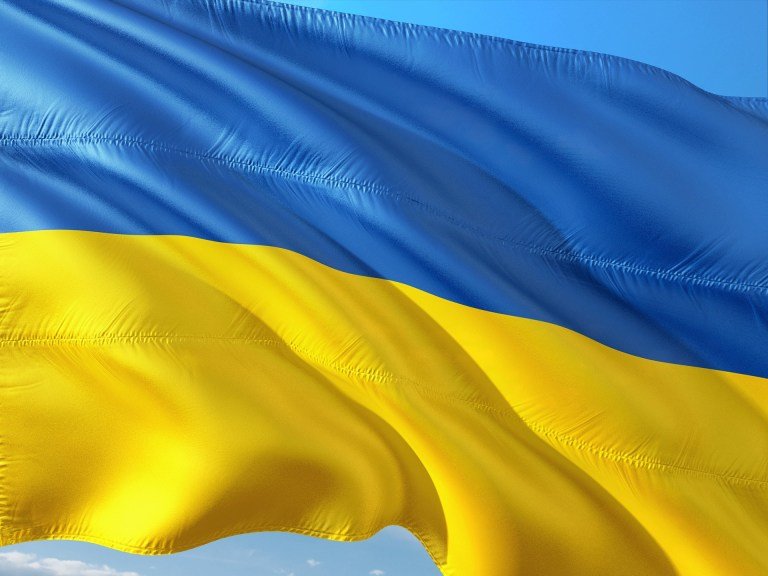
Although the Ukrainian government is blunt - at least for now - it also makes clear that the cryptononedas will not be banned because there are no amendments that justify this.
On 26 September Diario Bitcoin reported on the refusal of the Ukrainian authorities to recognize Bitcoin as a legal tender. And one of the senior executives of the National Bank stated that, because of the bad reputation of cryptodivisa in some countries and the lack of a central issuer, they could not have faith in Bitcoin as a legal means to carry out transactions. The truth is that a unified position among the regulators is not yet assumed, although the deputy governor of the National Bank of Ukraine, Oleg Churiy, wanted to take advantage of the Financial Forum organized by the ICU group to define and define the panorama better.
At the moment there is no unanimity. We have a working group at the level of state authorities and we are trying to reach a common position. "
According to Churiy, lawmakers around the world are at a true crossroads, as the challenge of regulating the cryptoneuroses raises two main questions that must be answered: the first is "what are they?" And the second " What to do with them? " The detail is that, according to the top executive, many regulators have not even found the answer to the first question, so they have never been able to move on to the next.
In addition, the Deputy Governor of the National Bank pointed out some details about the approaches adopted by other countries: in the case of Japan, the Cryptomonedas were legalized and both the bureaux de change and the rest of the services that handle virtual money had to comply with a series of Preventive requirements imposed by the Financial Services Agency of the territory, including Anti Money Laundering (AML) rules and Know Your Customer (KYC) procedures. However, there are also countries that have shown a clear ban on crypto-currencies, such as Bangladesh, Iceland, Vietnam and Ecuador, just as others still have a clear division of opinions about it, such as Russia and China. Of course, in both countries the restrictions apply to institutions and employees, but mining activities are not illegal for ordinary users.
But things are not there, as Churiy added that when European legislators communicate with the International Monetary Fund on cryptoactive, the institution always refers them to the directive of the main bank of the continent. The representative of the National Bank insists that it is not clear what to do; further stated:
We have come to the conclusion that crypto-currencies are not currencies since they do not have a central or active issuer. We can not recognize them as a means of payment and the only legal tender in Ukraine will be the national currency; despite this, there is no regulation, no law, which stipulates that cryptones are prohibited in the country. "
In addition to "what are they?" And "how should they be regulated?", Churiy clarified to the Financial Club that there is still a fiscal component in the matter, noting that although Ukrainian citizens are obliged to declare their income and pay taxes, the government of the country does not have the tools to administer the tax payments related to the criptomonedas.
During August, three Ukrainian lawmakers declared profits at Bitcoin valued at $ 47 million. Churiy says he does not know how to pay taxes, but acknowledges that at least they took the first step; another important point is financial monitoring, as the deputy governor of the National Bank stated that the Financial Action Task Force (FATF) also has requirements assigned to crypto-activists.
Earlier in September Ukrainian deputy Oleksiy Mushak suggested that virtual currencies could be subject to a 5% tax on the difference between buying and selling and that exchange traders may need to renew their licensees every 2 or 3 years.
Although authorities have not yet reached a consensus, the leader of the Verkhovna Rada Committee on Banking and Financial Policy, Sergey Rybalka, said that a bill on electronic money has already been launched. According to Rybalka, in order to achieve this objective, opinions and suggestions from representatives of the National Bank, the Ministry of Finance and other state agencies were collected.
Meanwhile, by the end of the year, about 150 Bitcoin ATMs in Cryptomat are expected to be installed nationwide, of which between 20 and 30 will be settled in the Ukrainian capital. These terminals support the trade of Bitcoin and Ethereum and do not require user identification.
Source: Bitcoin.com.
Image taken from Pixabay.
Peace, Abundance, and Liberty Network (PALnet) Discord Channel. It's a completely public and open space to all members of the Steemit community who voluntarily choose to be there.Congratulations! This post has been upvoted from the communal account, @minnowsupport, by maikol665 from the Minnow Support Project. It's a witness project run by aggroed, ausbitbank, teamsteem, theprophet0, someguy123, neoxian, followbtcnews/crimsonclad, and netuoso. The goal is to help Steemit grow by supporting Minnows and creating a social network. Please find us in the
This post has received a 3.13 % upvote from @drotto thanks to: @banjo.